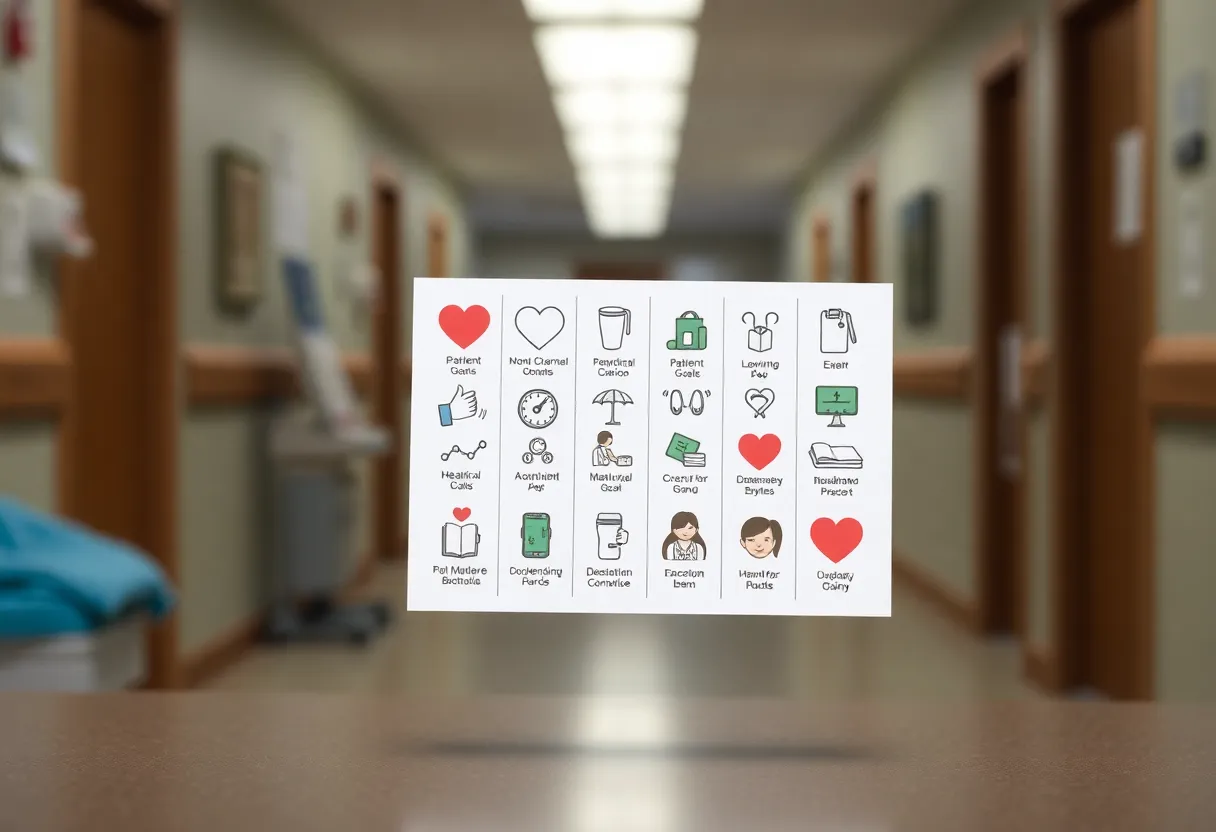News Summary
A new tool called the ‘About Me’ Care Card prioritizes dementia patients’ personal needs over clinical assessments. Developed through input from a global steering committee, it aims to enhance discussions around patient fears and goals, significantly improving the quality of care for individuals with cognitive impairments. Initial studies reported positive feedback, indicating that the card fosters personalized interactions, though improvements are needed for ease of use and effective planning.
New Card Could Transform Care Conversations for Dementia Patients
Imagine walking into a doctor’s office where the focus is not just on neurological assessments but on you and what truly matters to your life. A striking new tool, the “About Me” Care Card, is aiming to do just that. Developed by researchers who noticed that the existing cognitive impairment tools largely focused on clinical diagnoses, this card puts you, the patient, front and center, prioritizing your personal fears, goals, and social needs.
Filling the Gaps
In their initial studies, the creators undertook an environmental scan and engaged with a global steering committee comprising healthcare professionals, patient advocacy groups, caregivers, and individuals with dementia to ensure that the Care Card fit comfortably within existing care conversations. The committee’s feedback was instrumental in crafting a tool that truly addresses the emotional and social landscape of living with cognitive impairment.
A Test Run of the Care Card
In a pilot program, fourteen clinicians from seven institutions introduced the **Care Card** in various settings, like in-person visits and phone consultations. What they discovered was transformative. The card not only encouraged discussions about what matters most to patients but also fostered more personalized interactions. It tackled social care needs head-on and played a pivotal role in moderating the often-emotional dynamics between families and individuals living with dementia.
Patient Feedback is In
The results from 44 completed post-use surveys revealed that most patients found the Care Card beneficial. An impressive 65% of those surveyed recommended it for individuals over 65. However, there’s always room for improvement—only 41% found it easy to use, indicating that some individuals with advanced cognitive challenges might need assistance. Additionally, just 32% felt that it aided in creating a concrete plan that addressed their specific priorities.
Facing Financial Pressures
Cognitive decline isn’t just about memory and mental agility; it also has a significant impact on financial decision-making. Studies indicate that as we age, especially after 65, the impact of cognitive impairment can heighten vulnerability to financial pressures—giving rise to concerns about budgeting, rising healthcare costs, and shifting retirement patterns. With more than 90% of Alzheimer’s cases emerging after this age, current estimates suggest that over 11% of retirement-age Americans are affected.
Trends on the Horizon
As we look towards the future, the prevalence of Alzheimer’s disease and related disorders (ADRD) is anticipated to double by 2050. Women find themselves twice as likely to develop Alzheimer’s compared to men, while Black and Hispanic populations face even higher prevalence rates. These numbers paint a concerning picture, especially considering that early-stage cognitive impairment often leads to financial decision-making challenges.
A Closer Look at Financial Health
Interestingly, findings from a study conducted by the Federal Reserve of New York indicate that there are telltale signs in credit outcomes for those who may be on the cusp of a diagnosis. As many as five years prior to being diagnosed with ADRD, individuals show a noticeable dip in credit scores, alongside increasing payment delinquencies. For instance, the likelihood of credit card delinquency climbs by a staggering 21%, while mortgage delinquency increases by 11% just two years before diagnosis.
The Importance of Early Intervention
The financial implications for those affected can be harsh, with post-diagnosis consequences often leading to late fees and restricted access to credit—especially impacting women disproportionately. All of this highlights the critical need for identifying at-risk individuals through credit data which could pave the way for early diagnosis and intervention.
Bridging Two Worlds
The essence of the “About Me” Care Card isn’t just about enhancing conversations around cognitive health, but also about bridging the often-overlooked gap between mental and financial health. Early intervention could be key, helping to manage disease progression while simultaneously safeguarding financial outcomes for older adults.
In the end, understanding that cognitive and financial health are intertwined may just be the game-changer we need in caring for an aging population.
Deeper Dive: News & Info About This Topic
HERE Resources
The Transformative Impact of Generative AI on Advertising
Additional Resources
- McKnight’s: Care Cards Get Cognitive Health Conversation Going
- Wikipedia: Cognitive Impairment
- Mirage News: New About Me Tool Enhances Care Planning
- Google Search: Cognitive Health
- Psychiatrist: Cognitive Decline Threatens Financial Stability of Older Americans
- Encyclopedia Britannica: Dementia
- Healthline: Memory Game Resources
- Google News: Memory Exercises
- Everyday Health: Brain Exercises for Memory
- Medical News Today: Cognitive Impairment Doubled Since 2009






